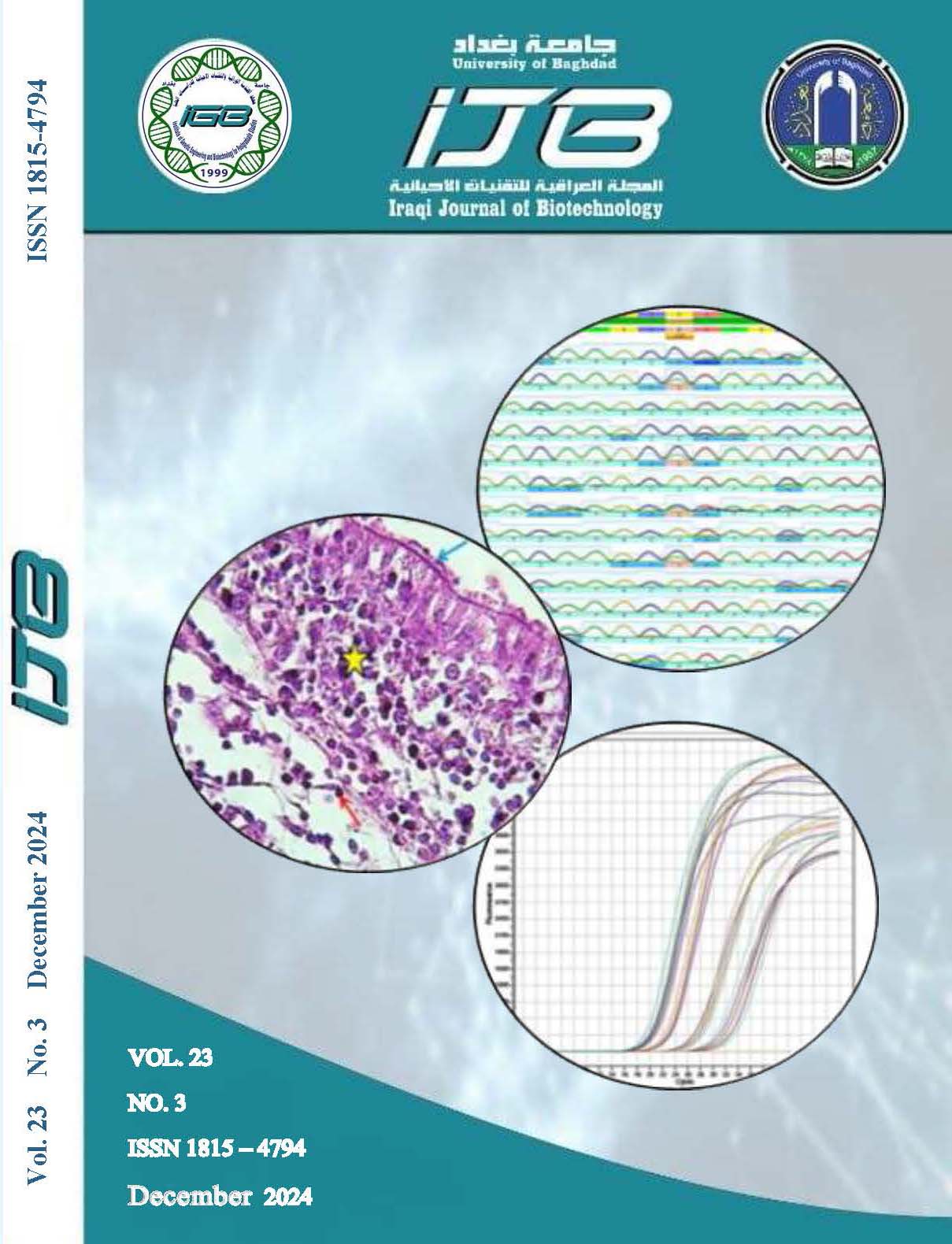Inhibition of Hyaluronidase Enzyme Produced by Staphylococcus Bacteria Using Curcumin Phenolics of Curcuma Plant
Abstract
Bacterial infections that caused by Staphylococcus bacteria remain a significant global health concern, necessitating the development of alternative treatment strategies. Hyaluronidase an enzyme produced by Staphylococcus enzyme that breaks down primarily hyaluronic acid thereby disrupting the structural integrity of the extracellular matrix (ECM) found in connective tissues which considered as virulence factor. The aim of this research was Study the effect of curcumin that separated from Curcuma zanthorrhiza as inhibitor agent for Hyaluronidase enzyme that isolated from Staphylococcus aureus which considered as virulence factor. The 120 clinical isolates were collected, Hyaluronidase enzyme was extracted and purification from Staphylococcus aureus bacteria that identified by performing standard laboratory techniques, and genotypic detection by 16S rRNA gene, and the enzyme was inhibited using effective plant compounds that were isolated from plant extracts. Results: showed that 100 out of 120 clinical samples growth of bacteria hen cultured on blood agar medium. Also, it was found that from the 100 isolates, the 56 (56%) isolates belonged to S. aureus. In order to test the ability of S. aureus isolates to produce hyaluronidase enzyme, the inhibition zones were measured by using brain heart serum albumin medium. The results revealed some that S. aureus isolates were able to produce hyaluronidase with zones of hydrolysis ranged between 5-20 mm. Among them, isolate Staph 21 was the most efficient in on by giving highest diameter of hydrolysis (20 mm) on brain heart serum albumin medium. It was concluded that the burn samples had more S. aureus than other bacterial isolates. A synthesis medium containing 0.5% yeast extract and 0.25 mg hyaluronic acid, pH7, and 37°C, and ammonium saturation to generated the enzyme. Curcumin inhibits hyaluronidase in certain quantities.


